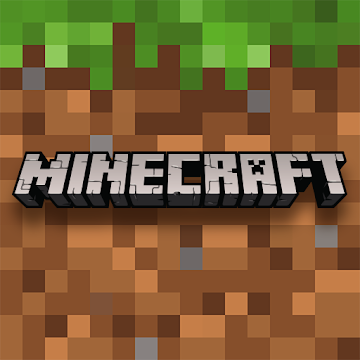The Sims holds a delightfully naive representation of existence that can be either reassuring or slightly unsettling, based on your current mood. Like a Barbie house, the series is subtly depolitical, meaning it's not really depolitical at all. The Sims is packed with ideas about how people operate and how success in life is measured, but it seems snide to highlight them because it's all just a game, right? The Sims takes place in an environment where spending money is always thrilling, and everyone is in their mid-twenties until they hit retirement age. Regardless of its environmental aesthetics, the game has always been fundamentally influenced by Californian life.
- Rating
- Price Free
- Category Simulation
- Version 1.3
- Developer ELECTRONIC ARTS



Features Review
That's acceptable. The dream of owning an attractive, self-built home is a completely valid game fantasy, and considering the last two games I critiqued revolved around violent themes, I don’t feel it's fair to criticize it too harshly. However, I embarked on The Sims 4, hoping for an experience that has been enriched and complicated with new artwork and smarter characters. On that matter, the results are mixed. The Sims 4 brings forward a vast amount of concepts, goals, and structures from its predecessor.
The game seems to follow the peculiar sequel trend of this series, a fresh start that strips away or eliminates a multitude of features from The Sims 3 and its expansions to start the cycle anew. In doing so, Maxis reconstructed the game to accommodate a new graphical style, superior animation, and an emotion system that changes the game's rhythm and feel.
After spending a hefty amount of time playing the game, I cannot see myself ever giving up many of these new features. For instance, multi-tasking is now possible, meaning Sims can execute multiple tasks simultaneously if physically feasible. For example, a Sim can prepare a meal whilst conversing with their spouse. It seems utterly natural, and Sims, when left alone, will engage in multiple activities at once. The era of navigating a Sim from a conventional conversation to watching television alone has gone, and good riddance.
But the game is not entirely faultless. Occasionally, Sims declare they can't go where you direct them. Sometimes they choose to use the restroom in a distant park because they're convinced they can't get to the nearby lavatory. Sometimes, during a date, two Sims will sit at opposite ends of a bar and chat with each other across the people between them. Some of these quirks are novel, some of them being a constant of the series; it's easier to overlook the former than the latter.
The new emotion system is the biggest selling point of The Sims 4 due to its novelty and depth. However, the emotions do not really affect the simulation of the game on a broader spectrum. Without your intervention, unattended Sims will survive vaguely on orange juice and cereal, watching television and browsing the internet until they forget to pay the bills, resulting in utilities cut off, leading to a gloomy life.
These in-depth emotional systems create opportunities for entertaining situations. However, they become part of an ongoing narrative's background rather than a permanent feature. I would have enjoyed an option to let my Sim's life unwind as they see fit.
If you wish for your neighbors' life to evolve, you must manually manipulate it yourself. They age as your Sim does, alarmingly at the same time, yet their relationships remain mainly as you determine. With all the new focus placed on the individual Sim's identity and cognitive process, it's a lost opportunity. Although the emotion system adds depth to the pre-existing gameplay, it does not offer much space for new ways to play.
In conclusion, The Sims 4 presents an intriguing and notably improved sequel with its more complex emotion system, improved animations, and game mechanics that allow multitasking. The game offers an immersive simulation of life, shifting it away from pure fantasy play to a more nuanced representation.
However, the persistence of certain quirks, the need for the player to heavily micro-manage their Sims' lives, and the lack of truly autonomous decision-making from the characters themselves still need to be addressed. Despite its flaws, The Sims 4 provides a charming, engaging, and often humorous playground for the imagination. There is a great potential for expansion in future sequels, promising even deeper and more realistic simulation games in the future.
Related Apps
Trending Apps
Blog
-
![Mastering the Elemental Dance: Choosing Between Neuvillette and Kazuha in Genshin Impact]() Exclusive Content
Mastering the Elemental Dance: Choosing Between Neuvillette and Kazuha in Genshin Impact
With the arrival of Genshin Impact's latest update, players are once again faced with the tough...
Read more
Exclusive Content
Mastering the Elemental Dance: Choosing Between Neuvillette and Kazuha in Genshin Impact
With the arrival of Genshin Impact's latest update, players are once again faced with the tough...
Read more
-
![The Elder Scrolls Online: Triumphs and Treasures in Tamriel's Rich Virtual Realm]() News
The Elder Scrolls Online: Triumphs and Treasures in Tamriel's Rich Virtual Realm
In the vast, ever-evolving world of MMORPGs, The Elder Scrolls Online (TESO) stands as a testament t...
Read more
News
The Elder Scrolls Online: Triumphs and Treasures in Tamriel's Rich Virtual Realm
In the vast, ever-evolving world of MMORPGs, The Elder Scrolls Online (TESO) stands as a testament t...
Read more
-
![eBay's Newest Innovation: AI-Powered Fashion Shopping Revolution]() News
eBay's Newest Innovation: AI-Powered Fashion Shopping Revolution
eBay, a pioneering giant in the online marketplace, has once again stepped up its game by integratin...
Read more
News
eBay's Newest Innovation: AI-Powered Fashion Shopping Revolution
eBay, a pioneering giant in the online marketplace, has once again stepped up its game by integratin...
Read more








